UPDATE March 7: Due to the evolving COVID-19 situation in Boston and revised Harvard University guidelines, this event will not take place on March 9. This is a postponement, and we look forward to updating our previously registered guests in the future.
The Art and Science of Mindfulness:
Exploring Research and Application of Mindfulness Practice
Join us for a symposium honoring the work of Zen Master Thich Nhat Hanh, the father of engaged Buddhism and a master of the art of mindfulness. Expert speakers will explore various aspects of mindfulness training, investigating the connections between scientific and practice-based perspectives and highlighting the growing body of research demonstrating the impact of a mindfulness practice on health and well-being.
Program
Welcome Remarks | Dean Michelle A. Williams
Comments | Dr. Lilian Cheung
Walk with Me Trailer | short video
Introduction to Program | Dr. Walter Willett
Panelist Overview | Dr. Alia J. Crum
The Art of Mindful Living in the Tradition of Plum Village | Dr. Thay Phap An
Mindfulness: A population health perspective on physical, mental, and social well-being | Dr. Eric B. Loucks
Mindfulness, Pain, and Fear | Dr. Sara W. Lazar
The Mind Made Visible: Eyesight and our variable perception of time | Dr. Andrew D. Huberman
Living Mindfully | Dr. C. Norman Coleman
Moderated Panel Discussion | Dr. Alia J. Crum
Moderated Audience Q&A | Dr. Alia J. Crum
Closing Remarks | Dr. Lilian Cheung
The End of Suffering | video of guided meditation and chant
End of Program, Reception | all attendees are welcome to attend the Reception
Speakers and Panelists
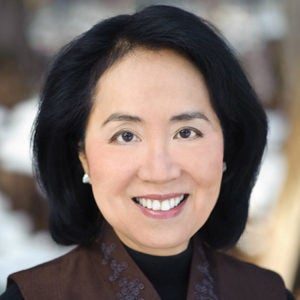 Lilian Cheung, DSc
Lilian Cheung, DSc
Lecturer and Director of Health Promotion & Communication,
Department of Nutrition, Harvard T.H. Chan School of Public Health
Editorial Director, The Nutrition Source
Dr. Lilian Cheung is Lecturer and Director of Health Promotion & Communication at the Harvard T.H. Chan School of Public Health’s Department of Nutrition. She is the Editorial Director of The Nutrition Source, the school’s nutrition website for health professionals, media and consumers. She also serves as co-editorial director of the Obesity Prevention Source, a website providing science based information for policy changes at the community level, as well as the Asian Diabetes Prevention Initiative, a website providing research-based evidence for policy makers and public with the goal of reversing the spread of type 2 diabetes in Asia. Her work focuses on the translation of science-based recommendations into public health communications and programs, to promote healthy lifestyles for chronic disease prevention and control.
She is the co-Principal Investigator and co-author of Eat Well & Keep Moving (2001, 2nd edition 2007, 3rd edition 2015), a globally disseminated school-based nutrition and physical activity program for upper elementary school children. She is a Co-Investigator at the CDC Harvard Prevention Research Center on Nutrition and Physical Activity.
Other work includes her role as co-editor of Child Health, Nutrition and Physical Activity (1995) with the late Surgeon General Dr. Julius Richmond, and co-author of Be Healthy! It’s A Girl Thing: Food, Fitness and Feeling Great! (2003, 2nd edition 2010), a book written for adolescent girls. Her latest book Savor: Mindful Eating, Mindful Life (2010, 2011) co-authored with Zen master, Thich Nhat Hanh, is in 17 languages.
 C. Norman Coleman, MD
C. Norman Coleman, MD
Senior Medical Advisor, International Cancer Expert Corps, Inc.
Dr. Norman Coleman graduated from the University of Vermont (mathematics) and Yale Medical School. He is board certified in internal medicine (University of California San Francisco), medical oncology (Natl Cancer Institute, NCI/NIH) and radiation oncology (Stanford). He is a retired O-4 from US Public Health Service. Dr. Coleman was a tenured faculty member in radiation and medical oncology at Stanford before joining Harvard Medical School in 1985 as the Fuller-American Cancer Society Professor and Chairman, Joint Center for Radiation Therapy. In 1999, he returned to the NCI as chief of the Radiation Oncology Branch and associate director of the Radiation Research Program. Since 2004 he has also been Senior Medical Advisor in the Office of the Assistant Secretary for Preparedness and Response. His research interests are in molecular radiation oncology, health and medical preparedness for radiological and nuclear emergencies, and global health. He is author of Understanding Cancer (Johns Hopkins Univ Press). He is Senior Medical Advisor for the International Cancer Expert Corps, Inc, an NIH official outside activity. He is a Fellow of the American Societies of Radiation Oncology, Clinical Oncology, Radiology and Physicians. Among other honors, he received the Gold Medal from American Society of Radiation Oncology in 2006, the Partnership for Public Service, Samuel J. Heyman Service to America Homeland Security Medal in 2011, the Failla Medal from the Radiation Research Society in 2016, Doctor of Science (h.c.) from the University of Vermont in 2015 and the Ellen Lewis Stovall Award for Innovation in Patient-Centered Cancer Care from the National Coalition for Cancer Survivorship, 2018. He and his wife Karolynn co-authored Mindfulness for the High Performance World (Springer Nature, 2019) to help explain mindfulness as a skill that can be incorporated into daily living. He and Karolynn, a clinical social worker, have traveled extensively starting from a round-the-world trip in 1974-5. They have studied mindfulness for over 20 years. Karolynn is a graduate of University of Massachusetts and Smith School of Social Work. She has been a psychotherapist in hospitals, educational institutions and family counseling centers and is now in private practice. She is formally trained as a meditation teacher and currently guides meditation at the Insight Meditation Center of Washington’s Center for Mindful Living. Karolynn and Norm are active trekkers, runners and triathletes.
Alia J. Crum, PhD
Assistant Professor, Department of Psychology, Stanford University
PI, Stanford Mind & Body Lab
Alia J. Crum, PhD is an Assistant Professor of Psychology at Stanford University and the Principal Investigator of the Stanford Mind & Body Lab. She received her PhD from Yale University and BA degree from Harvard University. Dr. Crum’s research focuses on how changes in subjective mindsets—the core assumptions we make about things and processes in the world—can alter objective reality through behavioral, psychological, and physiological mechanisms. Her work is, in part, inspired by research on the placebo effect, a robust demonstration of the ability of mindsets to elicit healing properties in the body. She is interested in understanding how mindsets affect important outcomes both within and beyond the realm of medicine, in domains such as exercise, diet, and stress. Moreover, Dr. Crum’s research aims to understand how mindsets can be consciously and deliberately changed through intervention to affect physiological and psychological well-being. To date, her research has won several awards including the NIH New Innovator Award and the Association for Psychological Science’s Rising Star Award. She is also the recipient of the Phi Beta Kappa Teaching Award and the Dean’s Award for First Years of Teaching at Stanford University. In addition to her academic research and teaching, Dr. Crum has worked as a clinical psychologist for the VA healthcare system and has created, delivered, and evaluated interventions focused on mindset change for organizations including LinkedIn, UBS, Stanford Healthcare, and the United States Navy.
Andrew D. Huberman, PhD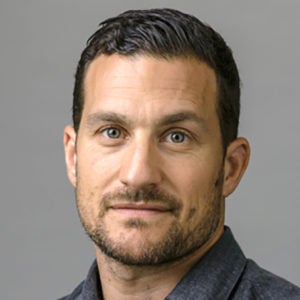
Associate Professor of Neurobiology and Opthalmology,
Stanford University School of Medicine
Andrew is a neuroscientist and tenured Professor in the Department of Neurobiology at the Stanford University School of Medicine. He has made numerous important contributions to the fields of brain development, nervous system function, and neural plasticity- the ability to rewire our nervous system to promote new behaviors, skills and cognitive functioning. Much of that work has focused on the visual system. His lab’s most recent work focuses on the influence of vision and respiration on internal states such as fear, courage, etc., as well as neural regeneration and clinical trials to promote visual restoration in diseases that cause blindness such as glaucoma. Huberman is also actively involved in developing tools now in use by elite military, athletes, and technology industries for: optimizing performance in high stress environments, enhancing neural plasticity, and stress mitigation.
Professor Huberman teaches Neuroanatomy, Neural Development, Regeneration and Plasticity to Medical Students and Graduate and Undergraduates at Stanford. He is also actively involved in educating the general public about the modern science of brain function, brain-body interactions and emerging therapeutics for human mental and physical health. He uses Instagram (@hubermanlab), podcasts and other zero-cost-to-consumer venues to share that information in order to educate the public about the brain. He is a standing member on the National Institutes of Health Grants Panel “Sensation, Perception and Cognition” and on the Editorial Boards of Cell Reports, Current Biology, Journal of Comparative Neurology, and Neural Development and Faculty 1000.
Work from the Huberman Laboratory is supported by the National Institutes of Health and various not-for-profit foundations and private philanthropists. Work from the lab has been published in: Nature, Science, Neuron, Cell, Nature Neuroscience, Trends in Neurosciences, Cell Reports, and the Journal of Neuroscience, and has additionally been featured in TIME, BBC, Scientific American, and Discover.
 Sarah W. Lazar, PhD
Sarah W. Lazar, PhD
Associate Researcher, Psychiatry Department, Massachusetts General Hospital
Assistant Professor of Psychology, Department of Psychology,
Harvard Medical School
Sara Lazar is an Associate Researcher in the Psychiatry Department at Massachusetts General Hospital and an Assistant Professor in Psychology at Harvard Medical School. The focus of her research is to elucidate the neural mechanisms underlying the beneficial effects of yoga and meditation, both in clinical settings and in healthy individuals. She is a contributing author to Meditation and Psychotherapy (Guilford Press). She has been practicing yoga and mindfulness meditation since 1994. Her research has been covered by numerous news outlets including The New York Times, USA Today, CNN, and WebMD, and her work has been featured in a display at the Boston Museum of Science. More information can be found at https://scholar.harvard.edu/sara_lazar
 Eric B. Loucks, PhD
Eric B. Loucks, PhD
Associate Professor of Epidemiology, Behavioral and Social Sciences, and Medicine, Brown School of Public Health and Warren Alpert Medical School at Brown University
Director, Mindfulness Center at Brown
Dr. Loucks is an Associate Professor in the School of Public Health and the Medical School at Brown University. He is Director of the Mindfulness Center at Brown. Dr. Loucks has held teaching positions at Harvard, McGill and Brown Universities. He has over 90 peer-reviewed publications. Dr. Loucks and his colleagues were among the first to show associations of dispositional mindfulness with cardiovascular health. They developed the first consensus theoretical framework of how mindfulness meditation could potentially reduce risk for cardiovascular disease. Dr. Loucks’s work showed in a recent clinical trial of Mindfulness-Based Blood Pressure Reduction (MB-BP) to have sizable lowering of blood pressure in hypertensive participants. His work has been widely distributed through media organizations such as the New York Times, TIME Magazine, and The Washington Post, along with numerous presentations to national and state governmental bodies.
 Thầy Pháp Ấn, PhD
Thầy Pháp Ấn, PhD
Elder disciple of Zen Master Thích Nhất Hạnh
Director and Dean of Studies, European Institute of Applied Buddhism (EIAB), Germany
Thầy (Bhikshu) Thích Chân Pháp Ấn is one of the elder disciples of Zen Master Thích Nhất Hạnh.
He received a Bachelor of Science (BS) in Chemical Engineering from the University of Texas in Austin in 1985. At the California Institute of Technology (Caltech), he received a Master of Science (MS) in Chemical Engineering in 1988 and a PhD in Applied Mathematics in 1990. He was a Research Fellow at ARCO Oil and Gas Research Center in Plano, Texas and worked as a Postdoctoral Research Assistant in the Mechanical Engineering Department at the Massachusetts Institute of Technology (MIT) before being ordained as a novice monk in 1992.
He received his Bhikshu Ordination in 1994 from the Zen Master Thích Nhất Hạnh at the (Hương Tích) Fragrant Mountain Great Ordination Ceremony in Plum Village, France. In February 1999, the Zen Master transmitted the Dharma Lamp to the Thầy Pháp Ấn.
He had the honor to represent the Zen Master and the Plum Village tradition at the Millennium World Peace Summit of Religious and Spiritual Leaders organized at the United Nations headquarter in New York in 2000 and at the First World Buddhist Forum organized in Hangzhou City and Zhoushan City, Zhejiang Province, China, in 2006. He helped to negotiate with the Vietnam government for the Zen Master’s returning and teaching trip to Vietnam in 2005 after the master’s 39 years in exile in the West. In 2007 he helped to organize the Great Requiem Ceremonies to heal the wounds of the Vietnam War. In December 2014, together with Sr. Chân Không, he had the honor of representing the Zen Master in the Vatican at the Joint Declaration of Religious Leaders against Modern Slavery organized by Pope Francis. Since 1995, he has led many retreats worldwide by himself and with Zen Master Thích Nhất Hạnh.
Since 2008, he is the Director and Dean of Studies at the European Institute of Applied Buddhism (EIAB) in Germany. He helps many people to open their heart, to transform fear and other negative emotions. His research interests are in the fields of Historical Buddha, Historical Jesus Christ, the development of Buddhist Meditation and Thought, Early Buddhism, the formation of Zen Buddhism, Buddhist Psychology, Integrative Medicine and Neuroscience with their applications to support the well-being of people of our time. He also studies, practices and enjoys sharing with others different forms of Qigong and Taichi.
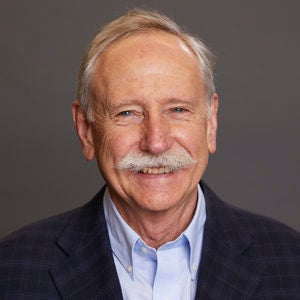 Walter Willett, MD, DrPH
Walter Willett, MD, DrPH
Professor of Epidemiology and Nutrition, Department of Nutrition,
Harvard T.H. Chan School of Public Health
Dr. Walter Willett is Professor of Epidemiology and Nutrition at the Harvard T.H. Chan School of Public Health and Professor of Medicine at Harvard Medical School in Boston, Massachusetts. He served as Chair of the Department of Nutrition at Harvard T.H. Chan School of Public Health for 25 years.
Dr. Willett was born in Hart, Michigan and grew up in Madison, Wisconsin, studied food science at Michigan State University, and graduated from the University of Michigan Medical School before obtaining a Doctorate in Public Health from Harvard School of Public Health. Dr. Willett has focused much of his work over the last 35 years on the development of methods, using both questionnaire and biochemical approaches, to study the effects of diet on the occurrence of major diseases. He has applied these methods starting in 1980 in the Nurses’ Health Studies I and II and the Health Professionals Follow-up Study. Together, these cohorts that include nearly 300,000 men and women with repeated dietary assessments are providing the most detailed information on the long-term health consequences of food choices.
Dr. Willett has published over 2,000 articles, primarily on lifestyle risk factors for heart disease and cancer, and has written the textbook, Nutritional Epidemiology, published by Oxford University Press. He also has four books for the general public, Eat, Drink and Be Healthy: The Harvard Medical School Guide to Healthy Eating, just recently revised and released, Eat, Drink, and Weigh Less, co-authored with Mollie Katzen, The Fertility Diet, co-authored with Jorge Chavarro and Pat Skerrett and Thinfluence, co-authored with Malissa Wood and Dan Childs. Dr. Willett is the most cited person in all areas of science and most cited nutrition scientist. He is a member of the National Academy of Medicine and the recipient of many national and international awards for his research.
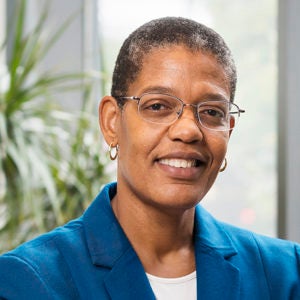 Michelle A. Williams, ScD
Michelle A. Williams, ScD
Dean of the Faculty, Harvard T.H. Chan School of Public Health
Angelopoulos Professor in Public Health and International Development, Harvard Kennedy School, Harvard T.H. Chan School of Public Health
Michelle A. Williams, SM ’88, ScD ’91, is Dean of the Faculty, Harvard T.H. Chan School of Public Health, and Angelopoulos Professor in Public Health and International Development, a joint faculty appointment at the Harvard Chan School and Harvard Kennedy School. She is an internationally renowned epidemiologist and public health scientist, an award-winning educator, and a widely recognized academic leader. Prior to becoming Dean, she was Professor and Chair of the Department of Epidemiology at the Harvard Chan School and Program Leader of the Population Health and Health Disparities Research Programs at Harvard’s Clinical and Translational Sciences Center. Dean Williams previously had a distinguished career at the University of Washington School of Public Health. Her scientific work places special emphasis in the areas of reproductive, perinatal, pediatric, and molecular epidemiology. Dean Williams has published over 450 scientific articles. She was elected to the National Academy of Medicine in 2016. The Dean has a master’s in civil engineering from Tufts University and master’s and doctoral degrees in epidemiology from the Harvard Chan School.
Registration: Please register by March 2 to attend this event. This event is free and open to the public. We invite all registered guests to please arrive fifteen minutes prior to the start of the program.
Location: The event will take place at the Harvard T.H. Chan School of Public Health, Auditorium G1, Kresge Building, 677 Huntington Avenue, Boston, MA 02115.
Sponsors: This event is sponsored by the Office of the Dean, Department of Nutrition, and the Lee Kum Sheung Center for Health and Happiness.
For more information: Please contact deansevents@hsph.harvard.edu



